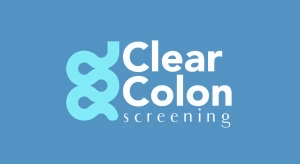
No Symptoms. No Referral.
No Excuse
Direct Access Colonoscopy is a great fit for today’s busy lifestyles, scheduling a screening colonoscopy has never been easier.
Step 1
Take our painless eligibility quiz! This is optional but can help answer questions.
Step 2
Reach out and schedule a consultation. We have flexible appointment times.
Step 3
Complete price transparency. You’ll know exactly what to expect ahead of time.
Who is Eligible?
Clear Colon Screening’s Direct Access Colonoscopy Program is a simple, convenient option for healthy patients to have a routine screening colonoscopy.
Clear Colon Screening's Direct Access Colonoscopy Program
Why should I consider this?
Clear Colon Screening’s Direct Access Colonoscopy Program is a simple, convenient option for healthy patients to have a routine screening colonoscopy.
There's no butts about it – colonoscopies save lives!
people have not been screened
of deaths could be prevented
Reasons you should get screened
Early Detection of Colorectal Cancer
Screening can detect cancer in its earliest, most treatable stages—often before symptoms appear.
Prevention Through Polyp Removal
Colonoscopies can identify and remove precancerous polyps, preventing cancer from developing altogether.
Peace of Mind and Reassurance
Regular screenings offer reassurance and reduce anxiety by confirming your colon health status.
Recommended for Adults 45+
The American Cancer Society recommends routine screening starting at age 45, even without symptoms or family history.
Am I eligible?
Direct Access Colonoscopy FAQ
Direct Access Colonoscopy allows healthy, age-appropriate patients to schedule a screening colonoscopy without a pre-procedure visit.
If you have abdominal pain, bleeding, changes in bowel habits, or any other gastrointestinal issues, a Direct Access Colonoscopy may not be the best initial examination for you.
To ensure the highest quality care, we request individuals with these issues to schedule a regular office visit prior to any procedure.
Colonoscopy is an examination of the large intestine using a flexible tube (colonoscope) with a video camera at the end. The tube is inserted into the rectum and advanced through the colon. At the time of the examination the doctor examines the lining of the intestine and can take tissue samples (biopsies) or remove abnormal growths such as polyps.
Other procedures are sometimes performed such as applying clips or electrocautery to prevent or control bleeding, or injecting fluid or dyes into the bowel wall. Most patients lie on the left side and usually receive a sedative medication injected through an intravenous line (IV) and are sleepy or asleep throughout the procedure. On average, the procedure takes between 20 minutes and an hour.
Colonoscopy is done to detect colon cancer or pre-cancerous polyps in both average risk individuals and in those with an increased risk of colon cancer, such as those with a family history of colon cancer or a personal history of inflammatory bowel disease. It is also done as part of the evaluation of symptoms such as rectal bleeding, diarrhea, change in bowel habits, and other conditions.
An examination of the entire colon is possible in the overwhelming majority of patients. Occasionally a complete examination is not possible because of narrowing of the colon, the presence of an unusually long and twisty colon, or looping and sharp angulation (usually from scarring related to previous surgery or diverticulitis). Even when the entire colon can be reached with the colonoscope, there is a chance that a polyp or other abnormality will not be seen. This chance is higher when pre-colonoscopy cleansing of the colon is not adequate, but still exists even when the colon is well prepared.
Colonoscopy is considered a relatively safe procedure, but serious complications occur in about 1 person out of 1000 (0.1%). These complications include infection, perforation (puncture or tear of the bowel wall creating a hole), bleeding (frequently from a treatment site, such as the place where a polyp was removed), cardiac problems such as heart attack or rhythm disturbances, sedation related complications such as aspiration or decreased respiration, and even death which is quite rare.
You may feel bloated or have cramping for 1-2 hours after the procedure is completed. You may feel tired and need to take a nap once you are back home. It is common to go for a day or two without a bowel movement. If biopsies are done or a polyp is removed, you may see a small amount of bleeding from the rectum.
You should plan to eat a light meal after the procedure, and then return to a normal diet if you are feeling fine. You should be completely recovered and able to return to your usual activities by the next day.

100%
Accuracy
deaths annually
people die from colorectal cancer each year in the U.S., yet regular screening could prevent many of these deaths.
treatable
of colorectal cancers are treatable when detected early through routine screenings.
Diagnosis
About 4% of women and 4.3% of men will be diagnosed with colorectal cancer in their lifetime.
Contact us
Fill out the information below and we will be in touch shortly.

Get In Touch With Us!
We’re committed to delivering the highest quality care with clear,
upfront pricing you can trust. Contact us today to schedule a consultation.
Office Location
4411 Bluebonnet Dr.
Stafford, Texas 77477
Hours
Monday-Friday
6:30am to 5:00pm
Saturdays(scheduled only)
6:30am to 1:00pm
Center Location
Fort Bend Surgery Center of Oakbend Medical System
14851 Southwest Freeway
Sugar Land, TX, 77478



